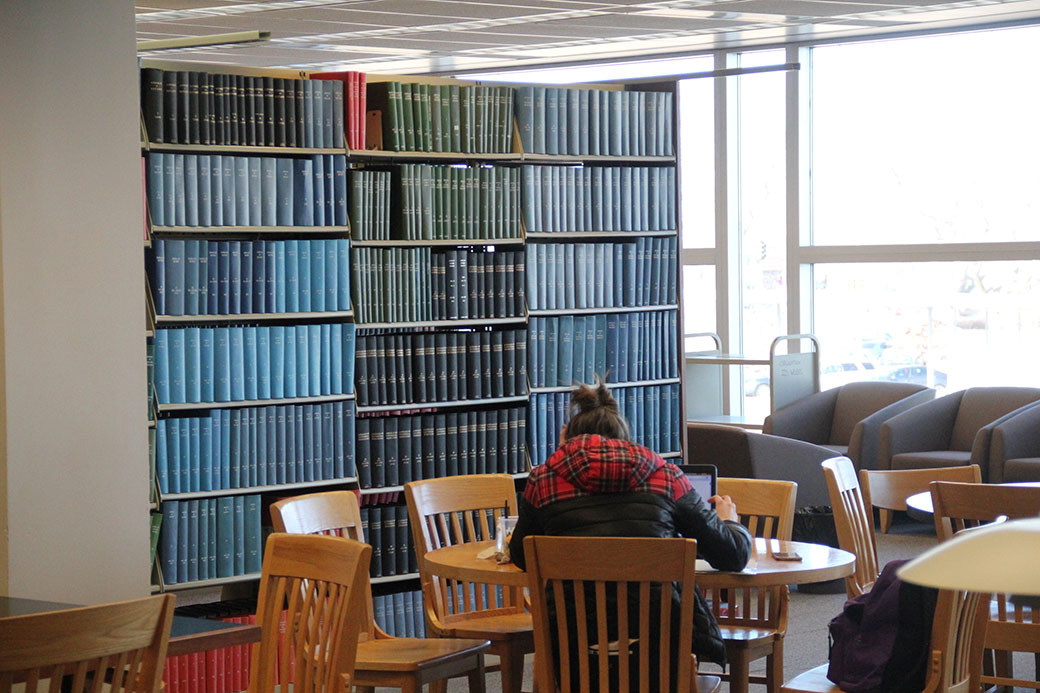
I.D. Weeks to cut subscriptions to dozens of publications
Because of skyrocketing subscription costs and budget constraints, I.D. Weeks library is in the process of cancelling its subscriptions to roughly 70 academic journals, newspapers and other publications.
Dan Daily, USD’s dean of libraries, said that while he doesn’t like having to eliminate any publications, cuts had to be made somewhere to balance the library’s budget. The library will continue to subscribe to thousands of other publications, mostly online.
“I have really made it kind of one of my priorities not to do cancellations, and try to maintain what we have,” Daily said. “What we do have is being used, in terms of those journal subscriptions.”
The plan would save the library roughly $50,000 a year. Many of the journals cost between $2,000 and $3,000 annually and some are used by relatively few people. Almost half of the library’s $3.5 million dollar annual budget every year is dedicated to its various subscriptions.
A big part of the problem is that subscribing to academic journals keeps getting pricier. Every year, Daily said, subscription rates for academic journals go up between 5 and 7 percent.
Daily pointed to the publishing industry – specifically, the publisher Elsevier – as the reason that academic journals are so expensive. As an example, Daily said at the height of the recession, while libraries were struggling with budget cutbacks, Elsevier was still posting profit margins of 30 percent.
“You talk to any librarian and they don’t have good things to say about Elsevier,” Daily said.
The high cost of subscribing to academic journals is taking its toll on university libraries all over, Daily said.
“This is really one of the greatest challenges for academic libraries,” Daily said. “The profits are going into the publishers’ bottom line, essentially.”
In order to determine which journals the library had to let go, Daily said library staff analyzed data to determine which journals were essential and heavily used, which were important but used only by a handful of people and which others weren’t used frequently.
Librarians also reached out to various departments to see which journals they might be able to do without.
Daily said the library used a “surgical approach” to pinpoint only the least-utilized journals to cancel.
“We didn’t want to cut something that we knew was important to a particular faculty member,” Daily said. “So, it might not be used highly, but very important to particular research projects.”
The library kept the vast majority of its many journal subscriptions, though a fair number of its newspaper subscriptions have been cancelled. The reason wasn’t because people don’t read the newspapers at the library – rather, newspapers are more for “general reading,” compared to journals, which are used for academic pursuits.
“That was a place where I had to make decisions,” Daily said. “I had to make decisions about some things that were less critical or less integral, like newspapers, to the teaching program here at USD.”
This will be the first major cancellation of subscriptions during Daily’s three years as library dean.
Stephen Johnson, a business and distance education librarian at I.D. Weeks, said being forced to cancel subscriptions is a difficult position for a library to be in.
“Ultimately, you get to a situation where you just cannot afford the journals that are so critical,” Johnson said. “They’re so critical for a university that’s positioning itself to be a research institution.”
The pricing schemes of some publishers, he added, are a big part of the problem.
“A lot of these publishing outfits are just – give me a word, I can’t even think of a word – they’re just diabolical,” Johnson said.
Johnson said he fears the library will run into situations where students or faculty need certain articles or publications, and the library will have limited ability to help them.
“It’s painful beyond belief,” Johnson said. “You have no choice, I mean you have to have a balanced budget.”
Tyra Thomas-Moore, a graduate student in counseling education and an adjunct speech professor, said that while having to do away with academic journals isn’t a positive experience, the library staff handled the problem as well as they could.
“I feel like it’s pretty unfortunate,” Thomas-Moore said. “I feel like they’ve done the best they can with the situation.”
Thomas-Moore said she felt like the library did a good job getting input from various departments on which journals could be cut.
“It’s been a very cooperative process amongst faculty and the library working together to decide what journals are really being used, and what kind of things aren’t,” she said.

